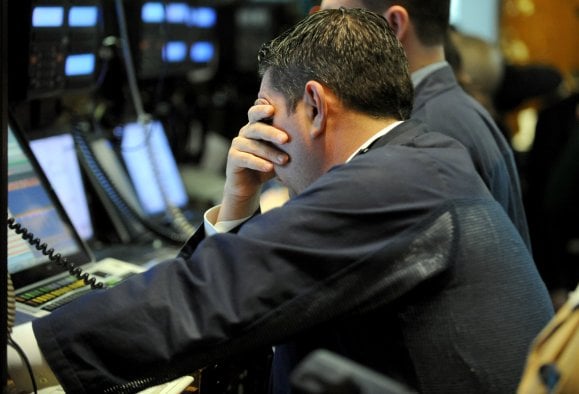Economists would likely agree that the bond market rally is the market's rational response to current (albeit heavily government-influenced) reality. But there's a disturbing signal ahead.
What a difference 18 months make. Just a year and a half ago, the debt markets were in a state of gridlock amid fears that credit would vanish, taking the economy down with it.
Today, although the economy is hardly booming, just look what's happened to credit — we're enjoying one of the biggest rallies in bond market history. As noted Wednesday in The Wall Street Journal, junk bond issuance is at a new high, and returns on more sober high-grade corporate debt are up 35% from their October 2008 lows.
What gives?
As the Journal explains, the government's $1.25 trillion mortgage-buying binge shored up the foundation of the credit markets and freed bond buyers to seek yield in other segments of the debt world. That set the stage for the current rally.
Economists would likely agree that all of this was the market's rational response to current (albeit heavily government-influenced) reality. And the bond market — a vast pool of knowledgeable institutional buyers and sellers driven by price/yield/creditworthiness considerations — is a rational, competitive marketplace par excellence.
Nevertheless, the recent buildup of corporate debt and the voracious investor appetite for such IOUs (the two sides of the same market coin) send a disturbing signal. With the economy weak and businesses struggling, how much sense does it make for corporations to be loading up on debt? From the buyers' side, isn't the quest for higher yields — which drives investors to lower-quality instruments — the same force that got us into the mess in 2007?
While the market is the most efficient mechanism for matching supply and demand, maximizing freedom and satisfying human needs, it is prone to a simple human failing: irrationality. And while I'm not for a moment suggesting that markets be “improved” by more regulation or superseded by Washington diktat — forces whose reason are exceeded only by their hubris and lust for power — what I am suggesting is that market efficiency is not the same as wisdom or judgment.
As Michael Lewis points out in his new book, “The Big Short: Inside the Doomsday Machine” (W.W. Norton & Co., 2010), there were a few observers of the pre-crash mortgage market who realized that more than a little was amiss and made bets that the shaky house of debt would collapse. At the time, they were seen as nuts. Today, they are seen as brilliant and insightful.
For all I know, today's healthy bond market may be just right in its assessment of the price of credit. In one sense, of course, “it is what it is,” as the cliché goes, meaning that the market price is the price that people are willing to pay and receive at this very moment. And in that sense, the market is correct.
In the other sense — whether the current price of credit is the price it should be — well, that's something else again. Given the yawning federal deficit, the massive unfunded liabilities of Social Security and Medicare, and our anemic economy, I for one can't be optimistic about the future price of credit. Unless the whole world continues to ignore our Greece- and Spain-like fiscal trends or we start turning out some miracle product that China can't make more cheaply, I can't imagine how we can continue spending more than we produce, and not pay the price through inflation or a lower living standard — or both. Whatever the economic outcome, today's interest rates are probably not at the right level for what's coming.
But since I am not a bond market participant (aside from a slice of my IRA that I haven't touched in years), my musings make not a whit of difference in setting bond prices. I may think I'm more insightful than the market in believing that credit is being mispriced given today's trends, but the market is always right. Maybe corporations are going into hock because they believe they can pay off the debt with cheaper dollars in the future. Maybe buyers believe that the Fed will keep inflation at bay. Or maybe everybody's just thinking about their bonus targets, and not giving a thought about 2013.
Whatever the reason, let's just hope the market continues to be right, and doesn't change its mind.







